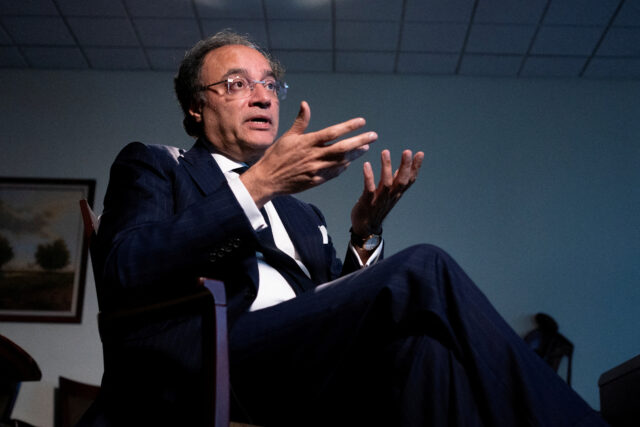Pakistan aims to secure a staff-level agreement with the International Monetary Fund by June or early July, according to statements made by its finance minister Muhammad Aurangzeb on Tuesday. The nation’s existing $3 billion deal with the IMF, which was arranged last summer to prevent a sovereign default, is set to expire in late April.
Islamabad is seeking a long-term bigger loan to help bring permanence to macroeconomic stability as well as an umbrella under which the country can execute structural reforms.
“We are still hoping that we get a staff-level agreement by June or early July,” Finance Minister Muhammad Aurangzeb told a conference in Islamabad.
He returned from Washington last week after leading a team to attend the IMF and World Bank’s spring meetings. “We had very good discussions in Washington,” he said.
He said he did not know at this stage the volume and tenure of the longer programme.
Around one million Pakistanis reside in the UAE, with remittances playing a vital role in Pakistan’s economy, according to Mr. Aurangzeb. Despite the World Bank’s forecast of a 10 percent decline in remittances this year, he noted an increase, expecting them to reach approximately $29 billion this fiscal year. These inflows are anticipated to stabilise Pakistan’s rupee, which has lost over 40 percent of its value against the dollar since the pandemic’s onset. Mr. Aurangzeb mentioned the rupee’s current stability, projecting a yearly depreciation of 6 to 8 percent.
Additionally, he highlighted a decline in inflation from about 38 percent to around 21 percent, with expectations to drop below 10 percent by 2025. Pakistan’s economy lags behind other Asian countries, notably India, where the per capita GDP is almost 50 percent higher.
If secured, it would be the 24th IMF bailout for Pakistan.
With Inputs From Reuters
Research Associate at StratNewsGlobal, A keen observer of #China and Foreign Affairs. Writer, Weibo Trends, Analyst.
Twitter: @resham_sng





